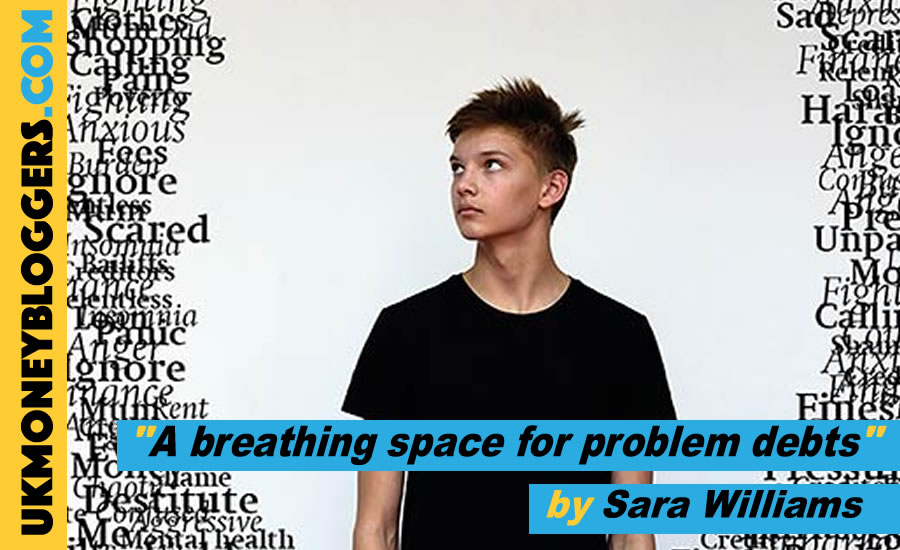This week’s Loose Change is from Sara Williams who writes about debt and credit ratings at the Debt Camel website, covering everything from payday loan refunds to IVAs.
On the 24th February 2017, Kelly Tolhurst’s Families with Children and Young People in Debt (Respite) Bill gets its second reading in the House of Commons. It aims to give families with problem debts a “breathing space” of a year.
Why a breathing space is needed
At the moment people with problem debts can ask their creditors such as banks and credit cards to freeze interest, but not all lenders do this. And it can be hard to get affordable payment arrangements put in place for bills such as council tax, utilities and benefit overpayments.
As a result, people are under a lot of pressure. Often this results in them taking short-term decisions that make their finances worse. They may miss payments to priority debts such as rent or council tax to try to stop interest being piled on to non priority debts. They may take out high cost types of credit such as logbook loans or payday loans to pay a bailiff. They may use credit cards for all their everyday spending, resulting in a maxed out and impossibly high credit card bill in a few months.
They may rush into a debt solution such as an IVA which is not their best option but which offers some immediate relief. A few people may even be panicked into going bankrupt before taking any debt advice.
This pressure can cause mental health problems, not just for the people in debt but also their families. This is why the Children’s Society is supporting the Debt Respite Bill:
When families fall into debt, parents often face impossible choices between keeping their children fed, warm and clothed or paying off their debts. This can lead to debts spiralling out of control, with interest rates and charges piling up.
That’s why we are calling on the Government to create a ‘breathing space’ scheme that gives parents and young people time and space to repay their debts with no rising fees or visits from intimidating bailiffs.
How a breathing space could work
A breathing space would make creditors freeze interest and not add any more charges or take any action to enforce a debt such as using bailiffs. This would be time limited – the bill proposed a year – which will remove the immediate pressure on people, allow them time to repay some priority debts and generally get a plan for resolving their financial situation.
A year may sound like a long time, but it can take time for people to get help to negotiate affordable repayment arrangements with their priority creditors. And without interest being added, it may be possible to reduce some consumer debts to a more manageable level.
This proposal isn’t just in the interests of the families with debt. As Kelly Tolhurst has said:
My proposed Bill is a bill that works for all. It works for creditors who get the money owed to them back, rather than seeing it written off through bankruptcy; it works for the state and services who support families and most importantly, it works for families and children who can repay their debts free from enforcement action, rising fees and charges and spiralling interest repayments.
What about people without children?
As drafted, the Bill is aimed at giving respite to families with children and some young people. Of course these aren’t the only groups that would benefit from a breathing space in which to take debt advice and have interest frozen. Single people and couples with no children living with them also need help. Pensioners, couples who have split up, single people who have lost their jobs… rather than try to list “deserving cases” it would be preferable to acknowledge that it is debt itself that is the problem because it makes taking good financial decisions harder.
Colin Kinloch, Debt Policy Manager for the Money Advice Service, sums this up:
It is vital that people in debt have time to get advice and find an appropriate solution without unnecessary pressure from their creditors. We need a consistent process that looks at people’s financial situation as a whole and this bill is a good start.


2 thoughts on “How a breathing space helps people in debt”
Schemes like this come along and always seem like too little too late to me.
Will enough people use the breathing space to change their lifestyle to be able to afford to pay the debt back?
I think this would be used by tens of thousands of people a year. It’s not always a question of “changing lifestyle” – sometimes all people need is a few months with no interest being added because they have lost their job or are sick and can’t work. Giving people a breathing space here prevents debt from becoming unmanageable.